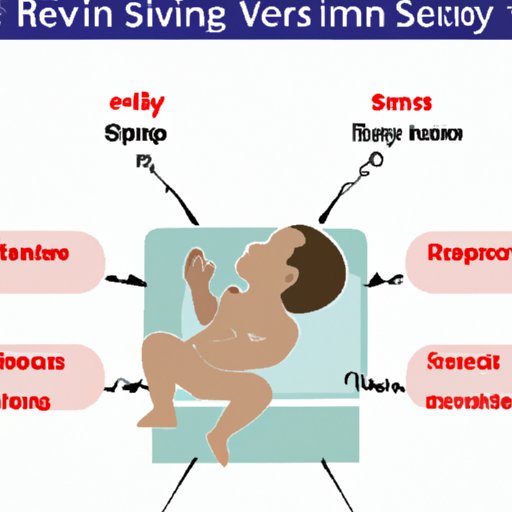
I. Introduction
RSV, which stands for respiratory syncytial virus, is a highly contagious infection that primarily affects the respiratory tract. It is vital to understand the symptoms and incubation period of RSV to protect yourself and others from contracting the virus. In this article, we will explore how long after exposure to RSV do you show symptoms.
II. Overview of RSV and its symptoms
RSV is one of the leading causes of respiratory tract infections in infants and young children worldwide. The virus can cause symptoms ranging from mild cold-like symptoms to severe respiratory infections such as bronchiolitis and pneumonia. Symptoms can last up to a week or more, depending on the severity of the infection.
RSV is spread through respiratory droplets from infected individuals and can also contaminate surfaces and objects. Anyone can be infected with RSV, but infants, young children, and older adults are more vulnerable to the severe effects of the virus. Individuals with weakened immune systems or those with pre-existing medical conditions are also at increased risk of RSV complications.
III. Timeline of RSV’s incubation period
The incubation period for RSV ranges from 2-8 days. This period refers to the time between exposure to the virus and the onset of symptoms. However, the incubation period may vary depending on the individual’s age and overall health status.
Infants and young children typically experience more severe symptoms than adults and may have a longer incubation period. Older adults or individuals with pre-existing medical conditions may also experience a more extended incubation period.
It is important to note that even if you are in the incubation period, you can still spread the virus to others. Therefore, it is essential to follow proper hygiene and safety measures to reduce the likelihood of transmission of the virus.
IV. Early warning signs of RSV
The early symptoms of RSV are similar to those of the common cold and include a runny nose, cough, fever, and sore throat. Infants may also experience difficulty breathing with a high-pitched wheezing sound, irritability, and poor feeding. It is common for the symptoms to worsen within the first few days of the infection.
If you or someone you know is experiencing symptoms of RSV, it is vital to seek prompt medical attention. Early diagnosis and treatment of RSV can limit the spread of the infection and decrease the severity of the symptoms. However, if left untreated, RSV can lead to serious respiratory infections and even death in some cases.
V. RSV and the respiratory system
RSV primarily affects the respiratory system by infecting the cells lining the airways. The virus causes inflammation and mucus production, which can make it difficult to breathe, especially in infants and young children.
There are no specific medications to treat RSV. However, supportive care is essential, including rest, hydration, and fever management. For severe cases, hospitalization may be necessary to provide additional respiratory support, such as oxygen therapy or mechanical ventilation.
VI. Tracking and understanding RSV through medical research
Medical research and advancements have aided in the understanding and management of RSV. Various medications, including antiviral medications, monoclonal antibodies, and vaccines, have been developed and are being tested in clinical trials.
Cutting-edge technology such as molecular diagnostics and gene sequencing has also enabled researchers to better understand the virus’s behavior and spread, leading to more effective treatments and preventative measures.
VII. What to do if you think you have RSV
If you suspect you have RSV, immediate medical attention is necessary. It is also essential to practice good hygiene and safety measures to prevent the spread of the virus to others. This includes frequent hand washing, avoiding close contact with others, and properly disposing of tissues or other materials that come in contact with the virus.
Individuals with RSV should stay home from school or work until the fever has resolved, and they are feeling better. Children with RSV should not attend daycare or school until they are no longer contagious and have cleared all symptoms.
VIII. Conclusion
RSV is a highly contagious virus that affects the respiratory tract, causing mild to severe symptoms. The incubation period for RSV ranges from 2-8 days and may vary depending on the individual’s age and health status. Prompt medical attention and proper hygiene practices are essential in limiting the spread of the virus and reducing the severity of the symptoms.




